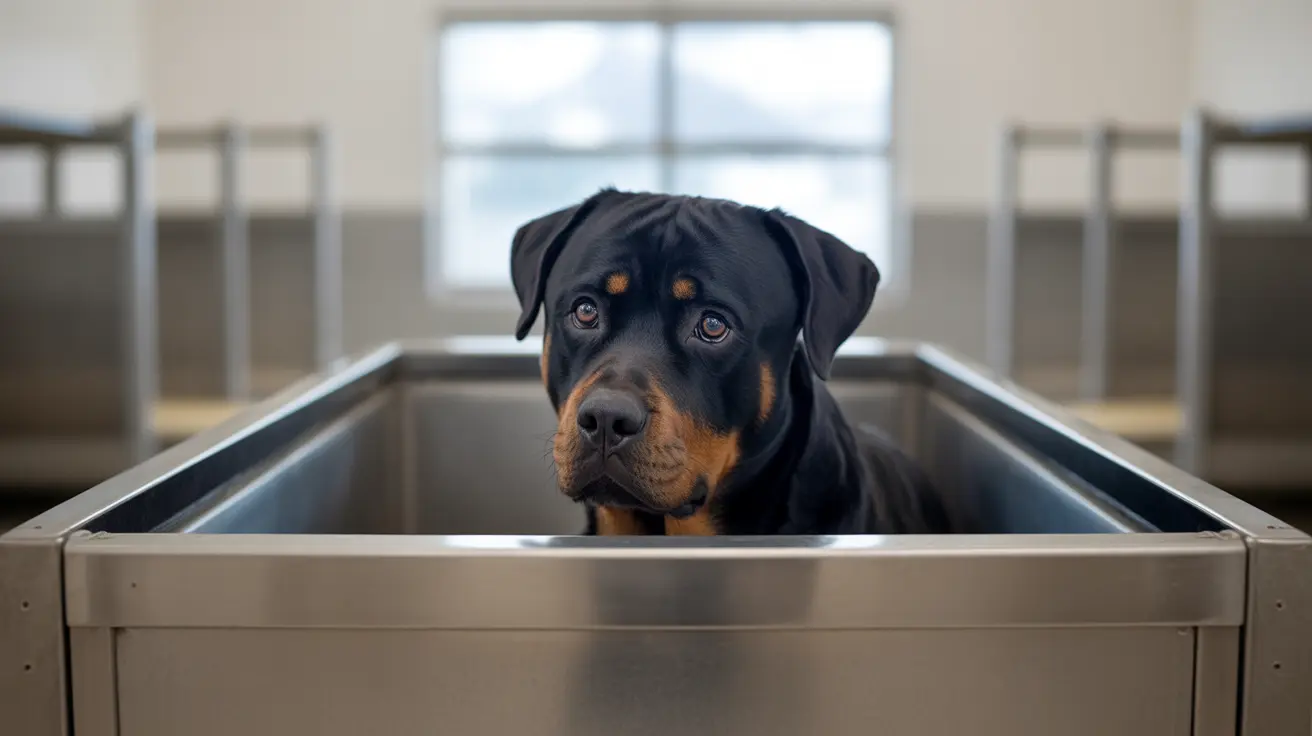Multnomah County Animal Services is facing a dire situation as the facility reaches critical overcapacity with 128 dogs and puppies currently housed in the shelter. With more than 60 of these animals ready for immediate adoption or foster care, the shelter is making an urgent plea to the community for help during this challenging time.
The overcrowding crisis has reached such severe levels that the shelter is temporarily housing animals in office spaces and hallways due to insufficient kennel space. This situation highlights a growing problem affecting animal shelters nationwide, where increasing pet surrenders are outpacing adoptions and rescue placements.
For prospective pet parents considering adding a furry family member, this presents both an opportunity to save a life and gain a loving companion while helping address a critical community need.
Understanding the Shelter Overcrowding Crisis
The current overcapacity situation at Multnomah County Animal Services stems from a sharp increase in dog intakes linked to several socioeconomic factors. Economic hardship, housing instability, and rising living costs have contributed to more pet surrenders than the shelter can accommodate through adoptions or rescue transfers.
The facility's physical limitations compound the problem significantly. The current shelter operates at less than half the size needed to adequately serve the growing population, forcing staff to make difficult decisions about animal placement and care. When kennel space runs out, animals must be temporarily housed in administrative areas, which is far from ideal for their wellbeing.
This overcrowding doesn't just affect the animals' quality of life—it also strains shelter resources, staff, and the ability to provide optimal care for each animal. The situation creates stress for both the animals and the dedicated staff working tirelessly to maintain their welfare under challenging circumstances.
How the Community Can Make a Difference
Multnomah County Animal Services has implemented several measures to encourage community support and reduce overcrowding. The most impactful way residents can help is through adoption or fostering programs that provide immediate relief by creating space for incoming animals.
To incentivize adoptions, the shelter has significantly reduced fees through September 2025. Dogs can be adopted for just $25, cats for $15, and small pets for only $5. These reduced rates include essential veterinary care, making adoption both affordable and responsible.
Foster care programs offer another valuable option for those who may not be ready for permanent pet ownership but want to help. Fostering provides temporary homes for animals while they await permanent placement, reducing shelter population and giving animals a chance to decompress in a home environment.
Benefits of Adopting During Overcrowding Periods
Adopting from an overcrowded shelter provides unique advantages for both pets and families. Animals in these situations often receive enhanced attention from shelter staff who are motivated to find them homes quickly, potentially leading to better behavioral assessments and more detailed information about each pet's personality and needs.
Many shelter dogs, especially those facing overcrowding situations, are particularly grateful for human attention and may bond more quickly with their new families. These animals often display remarkable resilience and adaptability when given the opportunity to settle into loving homes.
Additionally, adopting during critical periods helps support the shelter's mission while potentially saving multiple lives—not just the pet you take home, but also creating space for another animal in need.
Long-Term Solutions and Community Support
While immediate adoptions and foster placements address the current crisis, Multnomah County is also working on long-term solutions. Plans for a new, larger animal services center are in development, designed to meet modern shelter standards and better serve the growing community need.
Beyond adoption and fostering, community members can support the shelter through volunteering, donations to animal care funds, and spreading awareness about adoption events and ongoing needs. Even small contributions help provide food, medical care, and enrichment activities for animals awaiting homes.
Frequently Asked Questions
Why is Multnomah County Animal Shelter currently overcrowded with dogs and puppies?
The shelter faces overcrowding due to a sharp increase in dog intakes linked to economic hardship, housing instability, and rising living costs causing more pet surrenders than adoptions or rescues.
How can I help reduce overcrowding at Multnomah County Animal Services?
You can help by adopting or fostering available dogs and puppies, volunteering at the shelter, donating to animal care funds, or spreading awareness about adoption events and ongoing shelter needs.
What are the current adoption fees for dogs and other pets at Multnomah County Animal Shelter?
Adoption fees are reduced to $25 for dogs, $15 for cats, and $5 for small pets through September 2025 to encourage adoptions and alleviate overcrowding, with veterinary care included.
Why does the shelter sometimes house animals in offices or hallways?
Due to the high intake and lack of sufficient space—since the facility is less than half the size needed—the shelter temporarily uses office spaces to accommodate extra animals during overcapacity periods.
What steps is Multnomah County taking to address the shelter overcrowding long-term?
The county is planning a new, larger animal services center designed to meet modern shelter standards, improve animal care, and handle the growing population more humanely and efficiently.
The critical situation at Multnomah County Animal Services represents both a challenge and an opportunity for the community. By stepping up to adopt, foster, or support these animals in other ways, residents can directly impact lives while potentially finding their perfect four-legged companion. Every adoption creates a ripple effect that benefits the entire shelter community and helps build a more compassionate future for animals in need.






